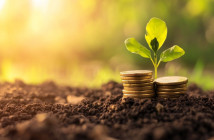Rising prices are eroding household income gains
The numbers: Consumer spending rose a mild 0.2% in February, but rising prices due to high inflation played a big role and is weighing on the U.S. economy.
Economists polled by The Wall Street Journal had forecast 0.5% increase.
A key measure of inflation also included in the report, meanwhile, also rose 0.6% last month, government figures showed. So real spending actually declined.
One bit of good news: The increase in spending in January was revised up to 2.7% from 2.1%. Taking the two months together, consumer spending got off to a healthy start in 2022 and exceeded the rise in inflation.
Incomes rose 0.5% in February. Wages have also climbed rapidly over the past year, but not as fast as the increase in the cost of living.
Big picture: The economy has accelerated since the coronavirus omicron wave faded. Americans are still spending plenty of money, while businesses are investing and hiring at a healthy clip. The U.S. is expected to add another half-million new jobs in March.
What remains to be seen is how much high inflation acts as a drag on the economy, especially with the Federal Reserve moving swiftly to raise interest rates to try to tame the rapid increase in prices.
The so-called PCE price index has climbed 6.2% in the 12 months ended in February, marking the biggest increase since January 1982.
The war in Ukraine and Covid lockdowns in China could are other potential land mines.
Key details: Americans spent more in February on hotels, restaurants and other services as the omicron wave faded, governments lifted restrictions and more people went out again.
They cut spending on new cars and trucks. New vehicles are hard to find because of major production delays, and even when they are ready for purchase, some customers have been put off by record prices and rising interest rates.
The savings rate rose to 6.3% from 6.1%, but was still a bit below pre-pandemic levels. After soaring early in the pandemic, the amount of money people are saving has declined gradually over the past year.
Looking ahead: “Despite sagging confidence due to the war and inflation, American consumers are hanging tough, undergirded by strong employment growth and built-up savings,” said senior economist Sal Guatieri of BMO Capital Markets.
“The slowdown in spending is a negative signal for economic activity going forward, if weakness persists,” chief U.S. economist Rubeela Farooqi of High Frequency Economics said. “Overall, high prices, declining real wages and disposable incomes as well as rapidly diminishing savings are headwinds for households.”
Market reaction: The Dow Jones Industrial Average DJIA, +0.40% and S&P 500 SPX, +0.34% were set to open narrowly mixed in Thursday trades.



